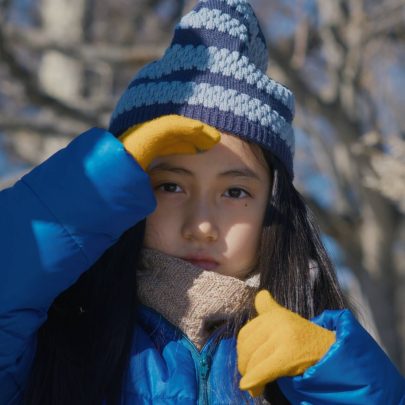Sep 4, 2013 Film & TV
Directed by François Ozon
François Ozon has long been a genre-bender, and his playful psychological thriller In the House proves no exception as he fuses two modern obsessions: low-brow reality TV shows and high-brow meta-narrative.
The tale centres on a manipulative schoolboy, Claude, who is so determined to infiltrate middle-class life that he befriends a classmate (ostensibly to help him with his maths) simply to have an excuse to regularly visit his bourgeois home. Having established a foothold, he can then devote himself to wooing the mother.
Ozon borrowed the idea for the film from The Boy in the Last Row by Spanish playwright Juan Mayorga and loosely adapted it to a French setting.
The results are outstanding as Ozon makes voyeurs of us all, allowing us to follow Claude’s increasing familiarity with Rapha’s family partly through the eyes of literature teacher Germain (Fabrice Luchini) and partly through those of Claude (Ernst Umhauer) himself, as he describes in regular essays his stealthy incursions into the family life of his dweeby friend, his basketball-mad father and prosaic but sensual mother.
Claude’s essays are eagerly devoured by Germain, who eggs on his sly pupil to be more daring in both his subterfuge and prose. It’s an artful, self-conscious setup where art influences life and vice versa but it never seems forced, not least because Luchini and Umhauer are so perfectly cast as symbiotic teacher and pupil.
Germain is a novelist manqué for whom mentoring his talented pupil represents a welcome reprieve from coaching dullards; Claude’s motivations are less clear (late in the film we learn he cares for a crippled father in a poor suburb), but it is obvious his teacher’s help is making him both a better writer and a more dedicated spy.
Both actors have chameleon qualities that add ambivalence to many scenes: Luchini’s face appears simultaneously droll and serious so you are always ready to laugh when he appears, even if rarely encouraged to; Umhauer is a young devil-angel, whose face can look both innocent and sinister, and you never know whether to be charmed or chilled by him.
In fact, it is Claude’s slight creepiness — it infects the film from the moment he describes “the singular scent of a middle-class woman” exuded by Rapha’s mother — which keeps the story from slipping into suburban melodrama.
Stories about storytelling can be tedious but this one is a light, clever and provocative concoction and well worth seeing.





